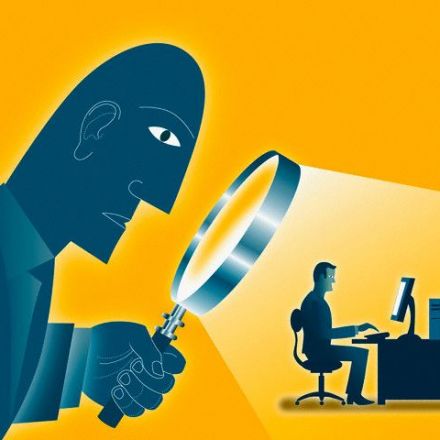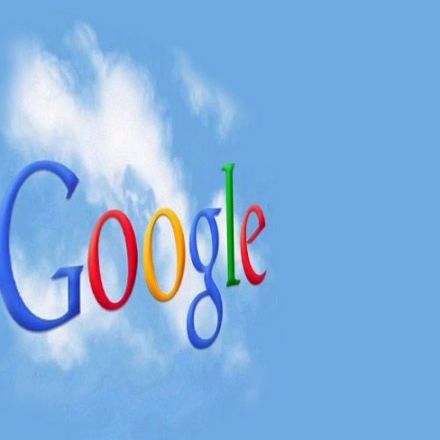

10 years ago
24
Authors Guild: ISPs Should Monitor and Filter Pirated Content
The Authors Guild has sent a letter to the U.S. Congress asking lawmakers to strengthen current copyright law. To stop dozens of millions in claimed losses, the authors want to increase liability for Internet service providers and make it mandatory for the companies to monitor and filter pirated content.
Continue Reading


























Join the Discussion
It's sad to see that the delusion of "piracy equals a lost sale" bleed into other industries. I'll say it again, and I'll say it a million more times, they probably wouldn't have bought the product anyways even if they couldn't pirate it. Media creators are on such a high horse to believe that any interest at all in their product automatically means a sale.
Isn't there findings that show a high majority of pirates end up buying something after pirating it? It was the same thing with The Martian. I did download it and started reading, when I realized it was a badass book I ended up buying it on Google Play books to read the rest. Besides, pirated books are super low quality compared to legitimately bought books with horrible formatting and weird random characters.
edit 1: I found some information on it.
People who pirate content are much more likely to buy digital content and spend more on it. So not only would these people probably not have bought your book anyways, but a sizable portion probably ended up buying it because they pirated it.
edit 2: Here's another interesting source on music downloads
Relevant quote -
Companies need to understand that if consumers like your product, they'll want to buy it legally. People will want to support companies by purchasing IF they had the money to do so.
I'm sorry, but that is completely nonsensical. Piracy is theft: You are taking a product without paying for it, it's as simple as that. Whether you would've bought it or not is irrelevant, you're still getting the benefits of the product. I have no interest in paying to see Ted 2, does that mean it's okay for me to sneak into the theater and watch it?
If you want a product, you have to pay for it, period; if you take it without paying, you're stealing. Just because you call it "Piracy" and use some circular logic to try and justify it, doesn't make it any less wrong.
Nothing about what I said is "nonsensical." My only point was that just because someone pirates a product does not mean it's a loss in sale. These companies are claiming 80$+ million in loses. Because it is a digital product, that is ONLY their perceived lost sales, it's NOT products being taken from their shelves so they can't sell to someone else and the cost of creating the product is now a definite loss. Just because someone pirates does not mean they would have bought the product if they couldn't get it for free, that is simply a fact and these companies are foolish to believe it's not.
That is simply a fallacious argument, built on a false premise, that's used to try and justify theft.
The consumption of media is the product. You buy content because you want that specific content. For example: When Harry Potter and the Deathly Hallows was released, people didn't buy the book because they wanted another book, they bought it because they wanted the story contained in it- they wanted that specific information; the story was the product. It's completely irrelevant that there's no physical item changing hands in digital piracy, because the physical item isn't the product, the information is.
You're clearly not getting my point. I'm not talking about piracy, the justification of it, or whether it is theft. I'm not interested in having that discussion or being preached to about it. I'm talking about the ASSUMPTION of the Author's Guild that they LOST 80$+ million in sales. They cannot prove they lost ANYTHING. They base their assumption of lost sales on number of illegal downloads. However, not everyone who downloaded a book would have bought it in the first place. They have no way to tell how many sales they ACTUALLY lost, and it's going to be a lot less than their claim.
At this point, I can't make my argument any clearer, so it's pointless to continue this discussion if you're just going to continue to ignore my point and what I'm saying.
This is not a difficult concept to understand:
When you take something without paying for it, that's theft. In the case of copyrighted material, it does not matter if you were going to buy it or not- you have it; you have received the value of the product without paying for it, again, that's theft. They were entitled to the purchase price of the material in question, you took it without paying, which means you stole the value of the purchase price.
If a game costs $20, and you download it without paying, then you have deprived the owner of $20; it doesn't matter if you were going to buy it or not, you still took it. Your argument is no different than someone shoplifting a candy bar and then saying: "It's not stealing because I wasn't going to buy it anyway"; one has nothing to do with the other. So yes, the Author's guild is absolutely correct in saying that every pirated copy represents lost revenue, because it does. Whether or not you were ever going to buy a copy of their book is completely irrelevant once you actually take it.
Well, looking at a definition of theft:
it would not seem to apply to digital piracy, as the rightful owner can't be deprived of the original. I believe this is the point /u/Fuyu was making.
It is not. I was making a comparison for perceived loss vs actual loss.
With real, physical products, you can calculate the money that went into making the product, and so when that product is stolen, you have a concrete value of what the company has lost. It isn't going to be the market price because companies sell at a profit, but it could still be something like a loss of 200$ to the company on an 800$ item that was stolen.
With digital products, there is no money that went into making a single individual copy. So when that copy is pirated/stolen, there is no actual damages UNLESS the person who stole the copy would have bought the product if it was not for them getting a free copy. And there is simply no way to tell who would or would not have bought the product if not for the free version. "Loss" claims on digital products are not concrete, calculable, numbers, and are nothing more than the companies ASSUMING people would have bought the product in the first place, which many would have not. Those numbers are nothing but propaganda and foolish assumptions.
Except that Copyright Infringement has been a recognized form of piracy for over four hundred years, and US courts have ruled more than once that depriving someone of the full set of rights and benefits of their property constitutes theft. Making illegal copies of copyrighted material is a clear violation of the exclusive rights of copyright owners, laid out in 17 U.S. Code § 106.
To make sure we're on the same page before I discuss your further points, my point was not the legality of the action, but the semantics (i.e. using specifically the word "theft", as opposed to piracy).
Great, we agree. Piracy is piracy, as was even shown by the definition I provided.
Interesting read, thank you. However the conclusion specifically states:
While I yield that specifically "theft" may not be a wording used in legal texts, neither of these stated valid claims seem to be in line with the act of depriving something from the rightful owner, though I admit I'm not familiar with the term conversion in this legal context.
I don't disagree.
---
Actually, writing the above, I believe I came to see your point. I believe it's that while the act of copyright infringement doesn't deprive the right holder of any tangible thing or return, it does deprive them of the rights to that work as they were denied their ability to decide the recipients of such work, correct? I can agree with this assessment and that in this case it can be constituted as theft. However, it may assume we're working in the context of the US legal system, as these definitions may vary. Admittedly, that seems to be the appropriate context for the article at hand.
That's correct. The Iowa State Supreme Court ruled in the 1940s, and multiple Federal Courts have since agreed that:
This is why it's irrelevant that no physical item changes hands when it comes to pirating, and why the claims of lost revenue are accurate, even when people claim they wouldn't have bought the item anyway.
Hmm, speaking of semantics again, I'd be more inclined to agree they're valid rather than accurate. I feel like accurate would also assume that the revenue would have actually been gained had the piracy not occurred, while valid simply agrees that theft occurred. This might be in the realm of nitpicking though, so maybe it's irrelevant. In the end, I agree with you on the point that software piracy does indeed constitute theft (at least under the current legal framework of the US, possibly in other countries as well).
I admit, it takes some getting used to, but once you understand the underlying concept, the semantics become clear. As a simple example:
You sell a video game for $20 a copy. That means that, for every copy, you are entitled to $20 in revenue. If someone downloads a copy illegally, that's $20 in lost revenue- it's money you are entitled to receive, but since they obtained an illegal copy, you don't get. Whether they would've ever bought a copy legally is irrelevant, they obtained a copy, and that means you should've received $20 in revenue. Since they didn't pay, that's lost revenue.
Yeah, ok, I'm seeing it. I still might not agree with it on principle, however I agree that it's valid reasoning and I'm happy we got these semantics figured out. It had previously been quite confusing to me how that argumentation had been arrived at, so seeing how it works & is valid is always nice!
And when you turn on the television and find that Ted 2 is playing on a broadcast network? Or a friend invites you over and you watch his copy? You're not paying for your consumption there either, so you best wipe your brain clean.
The current business model for media distribution doesn't reflect current reality. Companies that have learned how file sharing works have also learned how to leverage them for a new business model. Pirating media has had no genuine impact on consumptive behavior; people who want to see movies in the theater or read a book will buy it when they can afford it, not before. The more a distribution company harasses users in the name of combating piracy the more people turn to piracy just to bypass the harassment.
Repeated studies show that digital sharing allows people to sample content before they decide whether or not they think it's worth their money. The only time this has ever hurt sales of a product is when it wasn't very good in the first place.
Networks pay licensing fees to show movies, and if your friend paid for his movie, then he's free to show it in his own home to whomever he likes, so long as he's not trying to sell tickets. If you're going to be insulting, you might want to at least learn what you're talking about first.
Your whole argument is not only factually untrue, it's flat out ridiculous. First of all, there is a reason you pay for content before you consume it: because the consumption is the product. When you buy a book, or a CD, or a DVD, the physical item itself isn't the product, the product is the story/information/movie contained on it, and once you've consumed it, you can't "unconsume". It's not up to consumers to decide that they should be allowed to sample a product, that's a decision for the content provider to make. If you can't afford to see a movie, or buy a book, or buy a video game, then you don't get to have it, period; a lot of people can't afford a Ferrari, does that make stealing one okay?
Piracy hurts content creators, and any argument to the contrary is, at best mistaken, if not flat out lying.
Your arguments seem to have come straight out of the RIAA press releases. Piracy has helped more content creators than it hurts; if anything it hurts distribution outlets more than the content creators. And the distribution outlets don't get hurt unless they product they're distributing wasn't worth our time in the first place.
The fact is that current technology has made the old model of distribution and consumption obsolete. The fact that distribution companies are fighting this change doesn't alter that fact, it just means they're trying to leverage the law to protect their business model rather than adapt. I have no sympathy for them. Content creators who seek alternate methods of distributing their content tend to flourish, especially the smaller ones who never get a fair shake from the old distributors.
That is simply not true- it doesn't even conform to basic logic.
If someone creates content that you don't feel is worth your money, then don't buy it, but you don't get to steal it and then blame them for not making a better product.
The fact is that current technology has made it easier for people to steal content, that doesn't make it any less wrong, or illegal. Individuals and companies who own content have a right to be paid for that content, and any argument- any argument, to the contrary is simply nonsense.
I'm more concerned that major corporations and unions want to use any means necessary to censor the web to keep media in their hands. Rather than adjust their methods and see new ways to make money they cling to the old ways and insist everyone else is wrong and must be punished for their evil deeds. If I don't buy your product, it's because I didn't like it enough, if I come across it for free somewhere, I might give it a shot... but since I wasn't planning to buy it, you didn't lose that sale.
This is how the free web is destroyed if we aren't careful.
ISPs, search engines, etc don't have the resources to filter out every single illegal or immoral link, and if we start going after that freedom of expression will start to be seriously damaged and it opens the door for further censorship.
ISPs are utilities, and should be treated as such. They have no right to decide the content of the message going over their lines.
I have a complicated view on this because I myself am a content creator who makes a (meager) living via what I make. So, in a way, I can understand it'd be frustrating to see people enjoying the fruits of many hours, day, weeks, months, years, and so on of work for absolutely free. It's difficult, I get that. The way I see it, though, is that the problem isn't in how people are pirating things, but how content is distributed in the age of the internet.
Personally, I love Patreon and think it's the new way for content creators. Rather than doing like I used to and charging for what I make (subsidized with commissions), I now have people who donate to my Patreon every month, and in funding me I post everything I make for free somewhere on the internet to view. No pirating necessary, just a request to donate to me if they like it enough. A lot of people are making money this way, and I personally think this is the way we should be headed, toward a world of freely-available content funded via crowd-funding on the internet (which is what ad-based income is, really, just more direct) instead of the Quixotal crusade to end internet piracy for good.
I wouldn't trust my ISP with anything other than providing my internet. Hell, they barely even do that part of their job right.